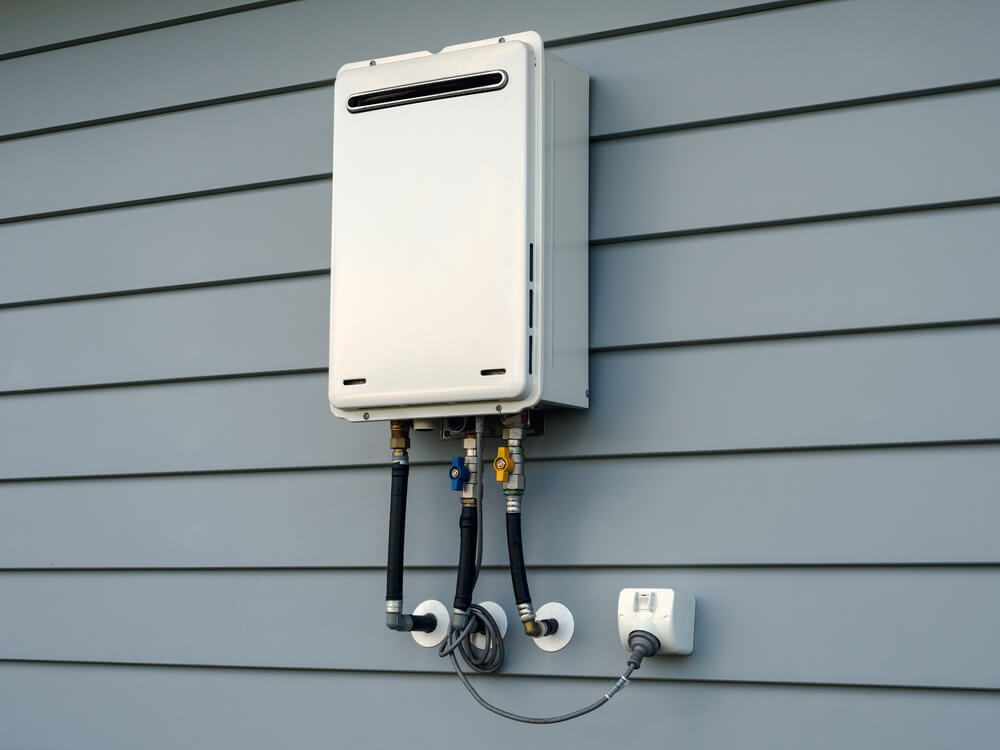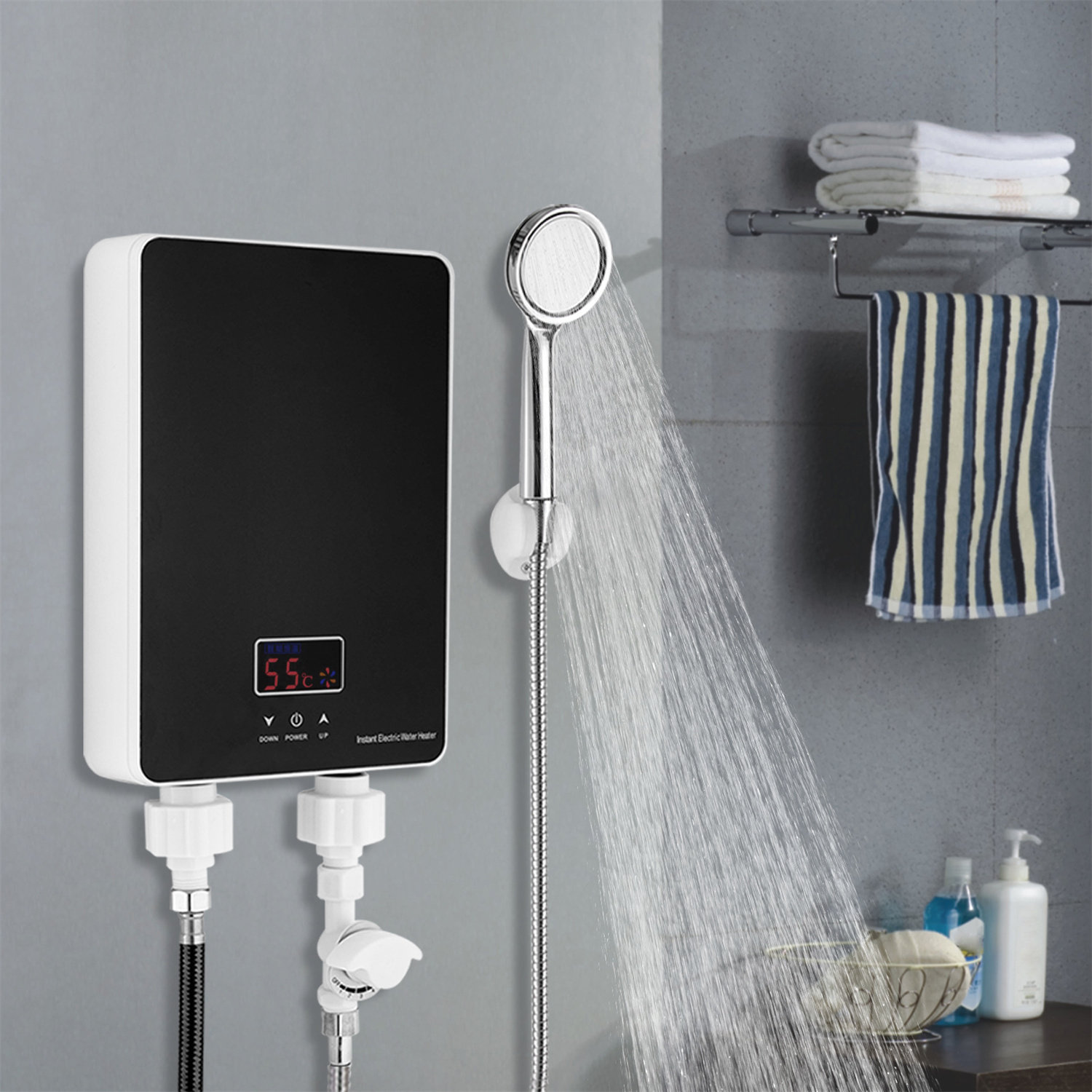Just how do you actually feel on the subject of Unveiling the Hot Trend: The Benefits of Tankless Water?

In a globe where ease and performance preponderate, it's not a surprise that property owners are regularly on the lookout for smarter methods to handle their home's power consumption and comfort. One advancement that has actually steadily acquired appeal is the tankless water heater. But exactly what makes these systems attract attention from the traditional tank-based models the majority of us grew up with? Allow's dive in and check out the advantages of tankless hot water heater, helping you make a decision if it's time to make the button in your house.
Intro
Image this: you enter the shower after a lengthy day, anticipating a calming cascade of warm water, only to be greeted by icy beads since the last individual utilized it all up. Audio acquainted? Conventional water heaters keep a set amount of warm water, indicating you go to the mercy of that container's supply. Tankless systems, on the other hand, warmth water as needed. Say goodbye to going out mid-shower, no more wrestling with schedules simply to make certain hot water is available.
Recognizing Tankless Hot Water Heater
What Are Tankless Water Heaters?
Tankless hot water heater, sometimes known as on-demand or instantaneous water heaters, provide warm water only as it's needed. Instead of storing gallons of pre-heated water, these devices kick into action the moment you switch on the tap. Water goes through a heat exchanger, warming up in real-time, meaning you obtain an undisturbed circulation of hot water without the demand for a huge container resting lazily by.
How Do They Vary from Traditional Solutions?
Typical heating systems hold a storage tank of hot water, making use of power to maintain that container at a consistent temperature level. Tankless devices get rid of the standing supply, cutting down on thrown away energy and the bulky footprint of a large cylinder. Essentially, you're updating from a "accumulation" way of thinking to a "made-to-order" approach.
Common Types of Tankless Units
Tankless water heaters normally are available in two ranges: gas and electrical. Gas models often tend to supply higher flow rates, suitable for bigger households, while electric models typically offer smaller sized homes and are commonly easier to mount. Furthermore, some systems are made for point-of-use (offering one fixture) while others can handle the entire home's warm water demands.
Trick Advantages of Tankless Hot Water Heater
Energy Effectiveness and Expense Financial Savings
No more warming a giant tank's well worth of water and maintaining it warm throughout the day. Tankless heating units minimize standby energy losses, which can lower utility costs. While the preliminary cost might be higher, the long-lasting savings usually justify the investment.
3. Space-Saving Layout
If your home is short on storage space, removing the large storage tank liberates beneficial space. Tankless systems are small and can usually be installed on wall surfaces, stashed in corners, or mounted in tight utility closets without having all to oneself the whole room.
4. Longer Lifespan
A well-kept tankless water heater can outlive its tank-based relative. Standard storage tanks may last 10-15 years, while tankless designs can keep chugging along for twenty years or even more, making them a strong financial investment with time.
1. Countless Hot Water Supply
Ever needed to arrange showers so every person gets their reasonable share of warm water? With tankless, that comes to be a thing of the past. As long as the heating unit's flow capability isn't gone beyond, you can take back-to-back showers without developing into a popsicle.
5. Improved Water Top Quality
Storing water in a storage tank can sometimes cause sediment build-up or a slightly "off" taste. With tankless systems, fresh water is heated instantly, lowering the opportunities of sediment build-up and potentially offering cleaner-tasting water.
Considerations Before Changing
Though the advantages are engaging, it's wise to take into consideration a couple of factors before totally devoting.
Reviewing Your Home's Water Usage Patterns
If your home simultaneously uses several fixtures with high warm water need, make sure the system's circulation price meets your requirements. Understanding your usage patterns assists you choose the appropriate dimension and type of tankless heater.
Upkeep and Treatment Tips
Tankless systems are fairly reduced maintenance, but they aren't set-it-and-forget-it appliances.
Normal Cleaning and Descaling
Difficult water minerals can accumulate in the heat exchanger, influencing effectiveness. Normal descaling (frequently suggested yearly) keeps the system performing at peak performance.
Yearly Professional Evaluations
A yearly checkup from an expert guarantees minor issues are captured early. They'll assess the device's performance, try to find leakages, and aid maintain ideal efficiency.
Preliminary Financial Investment Prices
Tankless heating systems normally feature a higher upfront price tag. Between the unit itself and prospective setup adjustments, the first expense may provide you sticker shock. Yet keep in mind to view it as a lasting financial investment.
Installment Demands
Depending upon your home's framework, you could require extra electric capacity or gas line upgrades. Guarantee you recognize the installation requirements and consult with a professional to stay clear of shocks.
Ensuring Proper Air Flow
For gas versions, appropriate air flow is essential to securely remove exhaust gases. Make sure airing vent systems are clean and correctly mounted to avoid any kind of prospective safety and security risks.
Contrasting Different Brands and Designs
Not all tankless hot water heater are developed equal.
Investigating Trustworthy Makers
Look for trustworthy brand names with a history of generating top quality devices. A reputable supplier frequently offers far better customer assistance and longer warranties.
Installment: DIY or Specialist?
While some homeowners cherish dealing with tasks themselves, tankless installment could not be the very best time to break out the toolbox.
Benefits and drawbacks of DIY Installation
A DIY mount might save money, but it includes dangers. Wrong setup can bring about inadequacy or safety and security issues. If you come in handy and have experience, it could be possible-- yet proceed with care.
Reading Evaluations and User Feedback
User reviews and comments from neighbors or buddies who have actually gone tankless can provide important understandings. Often, real-life experiences can be much more informing than advertising and marketing brochures.
When to Call a Specialist Plumbing Professional
For many, calling a pro makes sure every little thing's done appropriately. A professional plumbing professional recognizes neighborhood codes, sizing demands, and venting criteria, decreasing the danger of accidents.
Making best use of Efficiency
You've bought a tankless unit-- now maximize its performance.
Optimum Temperature Setups
Most people set their systems in between 120-140 F. Changing the temperature level can enhance comfort and savings. Experiment to discover a wonderful spot that does not throw away energy.
Coupling With Low-Flow Fixtures
Wish to extend your device's capabilities? Think about installing low-flow showerheads and faucets. They reduce water use, enabling your tankless system to supply a consistent stream of hot water without stressing.
Ecological Impact
Tankless water heaters straighten with greener living goals.
Reduced Carbon Footprint
By utilizing much less energy and just heating water as needed, tankless systems can decrease your home's carbon footprint, reducing your ecological influence.
Preserving Natural Resources
Much less energy usage and less squandered hot water translate into fewer natural resources being made use of, an environmental win-win.
That Benefits The Majority Of from Tankless Heating systems?
The beauty of tankless heaters is that they can match a selection of families.
Big Family Members vs. Solitary Owners
Big family members may like the countless hot water supply, while solitary passengers appreciate the energy cost savings from not warming a whole container for just someone's morning shower.
House Owners with Limited Room
If your home is short on square video footage, shedding the large storage tank frees up area for other fundamentals-- or possibly just more breathing space.
Eco-Conscious Consumers
Going tankless aligns with eco-friendly values, ensuring you're not squandering energy or resources.
Future Fads in Tankless Hot Water Heater
The globe of home devices is ever-evolving, and tankless water heaters are no exception.
Improvements in Technology
R&D is regularly enhancing heat exchangers, making units much more efficient and durable. Future versions may be even quieter, extra portable, and better matched for differing environments.
Smart Home Combination
Imagine adjusting your water heater's temperature level by means of an app or obtaining upkeep alerts on your phone. As clever home tech developments, we'll see even more connection and ease.
Verdict
Picking a tankless water heater is greater than just updating your home's warm water system; it's purchasing long-lasting convenience, power performance, and a greener lifestyle. By considering your household's water use, being mindful of installation demands, and devoting to normal maintenance, you can take pleasure in a constant stream of hot water without the baggage of a cumbersome container. As technology evolves, you can expect even smarter, much more efficient tankless options that not only make your life simpler yet likewise profit the earth.
Six Benefits of a Tankless Hot Water Heater
Continuous hot water. Large families know what a pain it is to hop into the shower and get blasted with cold water. With a tankless hot water heater, this doesn't happen as long as you install the right size tank. Even if you don t have a large family, a tankless hot water heater allows you to use multiple appliances at once without running out of hot water. Reduced energy bill. Because tankless heaters are essentially "off" when the water tap is not on, they use less energy overall. In fact, an ENERGY STAR-qualified tankless hot water heater can use 25-40% less energy than a conventional water heater, and save the average family $100 or more annually. Longer life. Get more bang for your buck with a greater lifespan. Specifically, conventional hot water heaters last about 10-13 years compared with up to 20 years for a tankless hot water heater. Less space. Did you know that tankless hot water heaters can be hung on a wall almost anywhere in your home? Plus, at 28" tall by 20" wide and 10" deep, a tankless hot water heater takes up a lot less space than a conventional hot water heater, which is 60" tall and 24" wide. Good for the environment. In addition to reducing the amount of energy used, most propane-fired tankless water heaters are made of recycled materials. Many conventional tanks, on the other hand, go directly to the dump once they've served their purpose. High safety ratings. Conventional water heaters are "always on" and thus pose safety risks more often than do tankless heaters, which only operate when warm water is needed. https://www.rotorooter.com/blog/water-heaters/six-benefits-of-a-tankless-hot-water-heater/

I'm just very focused on Pros and Cons of Tankless Water Heater and I hope you liked the entire article. Sharing is good. Helping others is fun. Many thanks for taking the time to read it.
Book A Service Call